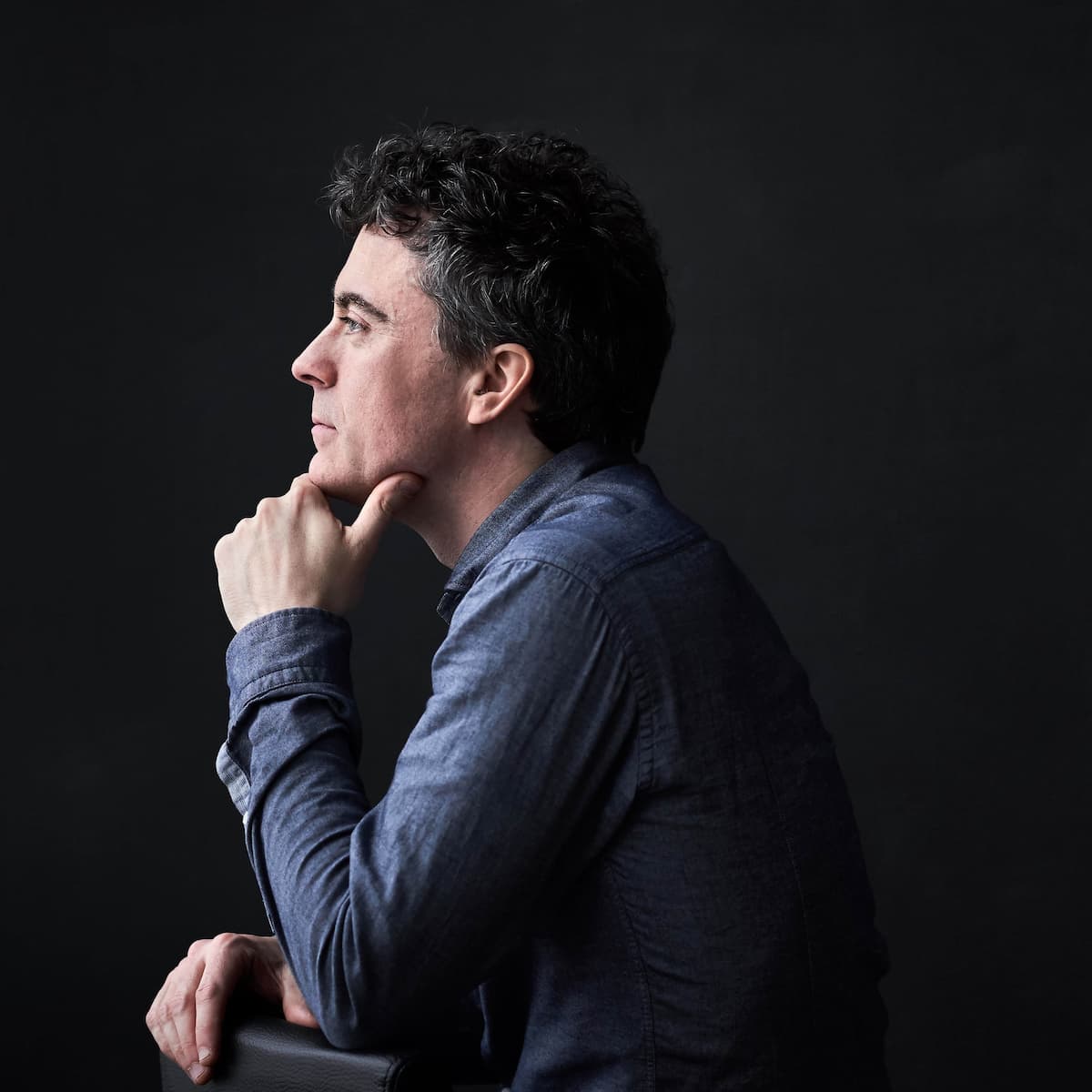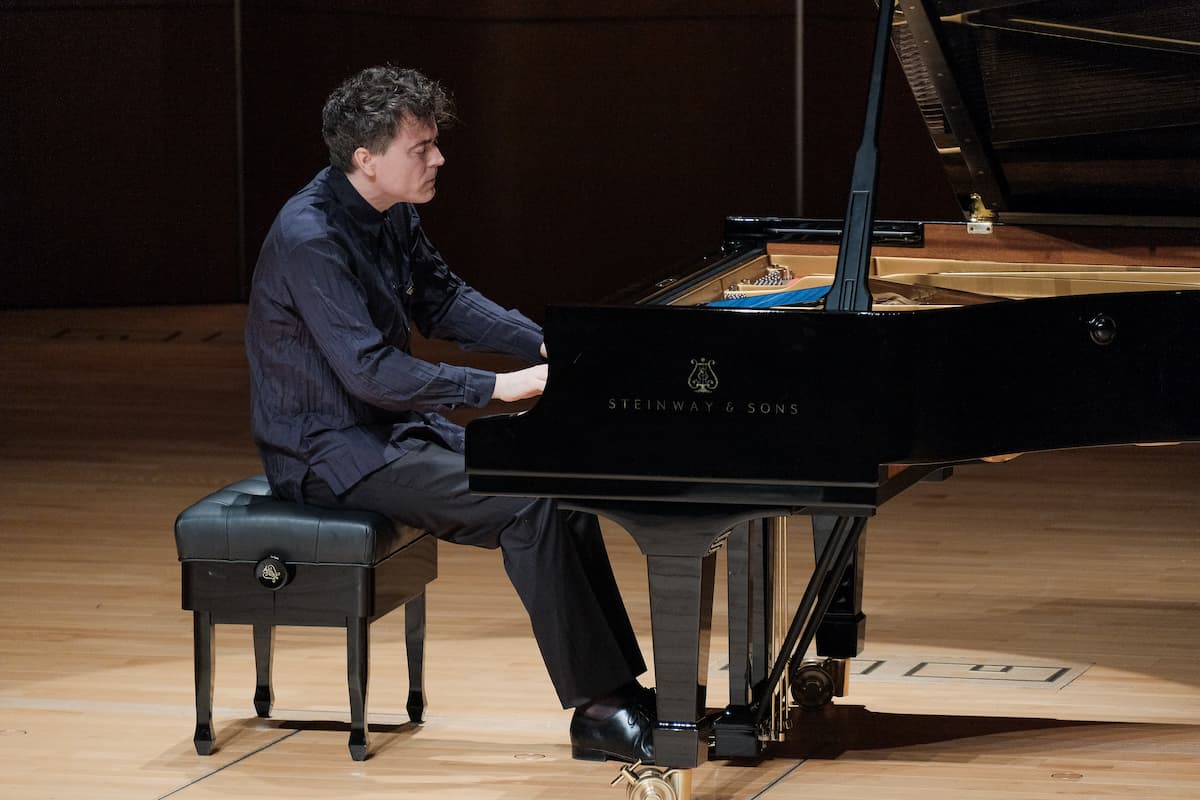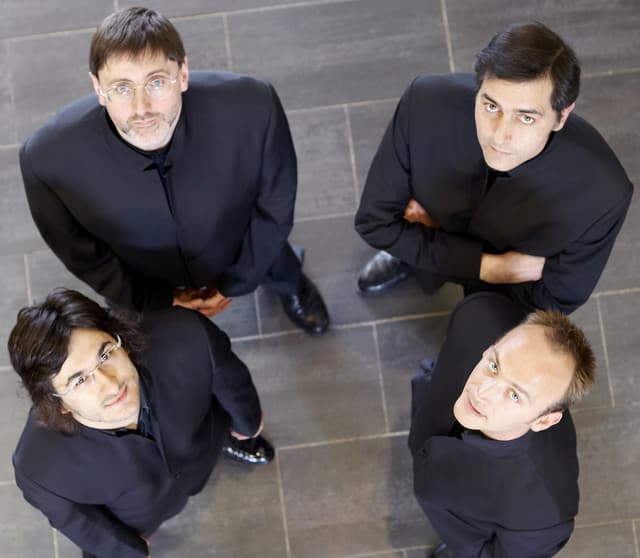“I love the vulnerability of Schubert. I love the fragility. I love the lack of resolution. In a way, it’s the most real and human music.” – Paul Lewis
Schubert: Piano Sonata in A Major D. 664, II. Andante | Paul Lewis
One of the most celebrated Schubert interpreters of our time, British pianist Paul Lewis studied with Joan Havill at the Guildhall School of Music and Drama in London, and later privately with Alfred Brendel, whom Lewis regarded as an immense musical influence in his understanding of Schubert.

Paul Lewis © Kaupo Kikkas
After more than two decades, Lewis again embarked on the journey of Schubert’s 12 Piano Sonatas (including the unfinished Reliquie Sonata). Ahead of his appearances in Hong Kong this month, he talked to us about the conception of this cycle, his affinity for Schubert, and interpretive issues revolving around Schubert’s music.
The text has been edited for clarity and length.
What sparked your love for classical music in your early years?
I remember being interested in all sorts of music, including whatever I heard on the radio. There was no music at home, but when I joined the local library at the age of 8, I was able to take advantage of the classical records stocked there, being absolutely fascinated with it! I guess children’s enthusiasm and love for music are built in. It’s just a question of how you discover it.
What inspired you to take on the challenge of the Schubert Sonatas cycle?
It’s a cycle I did around 20 years ago. It’s simply the love for Schubert’s music that inspired me to take on the challenge, as I wanted to spend as much time as I could with it. That has been a feature of my work over the years, concentrating on one or a few composer(s) for a period of time.
In the meantime, I’ve done various other series and cycles, such as the Complete Beethoven Sonatas and all the mature Schubert piano music from the last six years of his life. I just wanted to come back to it 20 years later – I suppose I do it differently now, and there are things that I do see differently.

© Kaupo Kikkas
What elements in Schubert’s music make it particularly dear to your heart?
I love the vulnerability of Schubert. I love the fragility. I love the lack of resolution. In a way, it’s the most real and human music. He is what he is, with all his worries, vulnerabilities, and neuroses, and that comes through in his music. The things that make human beings fragile – loss, hope, nostalgia – always come to the fore in Schubert’s music. That’s why I love it so much.
Franz Schubert: Piano Sonata in B-flat major, D.960 – II. Andante sostenuto (Paul Lewis, piano)
In an interview, you said that doing a cycle of Schubert sonatas is like “spending a lot of time with one of your closest friends”. What do you hope the audience will feel or experience through this journey?
From the audience’s point of view, I’d like the sense of relationship [between Schubert and me] in all its complexity to come across in some way. I mean, even with your closest friends, you will experience ups and downs, and it is never straightforward. People are complex, and the greatest music is complex – there’s definitely a parallel. It is difficult to put into words exactly, but I hope the audience will feel a sense of the closeness of the relationship.
How are the sonatas ordered?
I placed Schubert’s last three sonatas (D.958 – D.960) in the final programme, for they are one of the peaks of the piano repertoire. To play those three together is an incredible journey hard to resist. After that, I put the three other late sonatas in the second half of each of the three remaining programmes. Then, it’s just a question of ordering the remaining sonatas and separating the A minor sonatas – you wouldn’t want to have two A minor sonatas in the same programme.
Franz Schubert: Piano Sonata No. 14 in A Minor, Op. 143, D. 784 – III. Allegro vivace (Paul Lewis, piano)
How do you approach Schubert’s late sonatas, which are so deeply tragic but at the same time convey acceptance and occasionally tinges of optimism?
After his Sonata in A minor D.784, which was composed around the time of his diagnosis of syphilis, everything in his music changed and became so bleak. There is occasionally optimism, but I’d say it is more of nostalgia, reminiscing about something you can’t have anymore. That’s what I find more in his late works. There is certainly acceptance in Schubert’s reluctance to resolve or to find answers to things where, let’s say, Beethoven would resolve. Schubert accepts things the way they are and that we don’t necessarily have answers. This fits my way of thinking with the tragedy of his music, and it’s a very human quality.
Franz Schubert: Piano Sonata in A major, D.959 – II. Andantino (Paul Lewis, piano)

© HKU MUSE
The repeats in Schubert’s sonatas have posed a headache for many pianists. How do you decide on when to take the repeat and when not to?
It’s more a question of the way composers develop their material. For instance, I would normally do all the repeats in Beethoven’s sonatas. With Beethoven, things develop at such a high speed. With such density, it’s usually helpful to hear that music another time. As for Schubert, I’m not convinced that it’s always necessary to repeat. His recapitulations tend to be far more similar to the expositions compared to Beethoven’s, and Schubert takes more time and space to develop his ideas.
I know the repeats are there [in the scores], but I believe that’s more of a convention for composers to write down repeats. In certain cases, like the first movement of Sonata in C minor, D.958, it’s absolutely necessary. But I generally don’t take the repeat in the first movement of the last Sonata in B-flat major, D.960. It’s not because of that fortissimo trill in the first-time bar (laughs), but because there’s only one major difference between the exposition and the recap.
There was this famous story of Brahms conducting his Symphony No. 2 some years after its premiere. At this point, it was no longer a piece new to the public, and he didn’t take the first movement repeat. Afterwards, he was asked why he didn’t. He replied, “In the early days when people didn’t know the piece, I used to take the repeat. These days people know it much better, so I don’t.” It seems a very simplistic answer, but I guess sometimes it can be that simple.
The word moderato repeatedly appears in the tempo markings of his works (e.g. Allegro moderato, Molto moderato), sometimes creating ambiguity in interpretation. In your view, is it merely a tempo indication, or does it hint at the emotional intensity or the flow of the music?
I think it’s more of a tempo indication. I’m inclined to believe that tempo indications are at least as much character indications as they are tempo indications. But in this case, I believe Schubert is telling us the tempo shouldn’t be excessive in any direction – he’s moderating the way we think just in terms of the tempo rather than the character of the music.
What in everyday life or other aspects of arts gives you inspiration in understanding Schubert?
All our experiences in life feed into who we are as musicians, how we approach music, and how we perceive musical characters. We often experience or witness loss, grief, and tragedy these days, but I think what’s important is to remember that our own experiences were not necessarily those of Schubert. It is essential, as an interpreter, to try not to make it about yourself, but to bring the experience to it.
In what way has your understanding of music evolved through the COVID-19 pandemic?
I would always have said before the pandemic and now still say that people need music in some way. It keeps us in touch with something that is difficult to articulate in words. During the pandemic with such distance and remoteness [from each other], I came to understand that music needs people – if there is no one to experience it, then what is music? It would just be notes on a page. Music is really a social interaction and an exchange. When you perform music at a concert, the audience participates and becomes a crucial part of the experience. The remote way we all lived our lives for some time has helped me understand that.
For more of the best in classical music, sign up to our E-Newsletter




Excellent Schubert performances. Very good sound.
“Lack of resolution”. What an insightful comment. Schubert’s wistful piano music seems to lack the rigid backbone of Beethoven’s, which simply makes it different, not inferior.